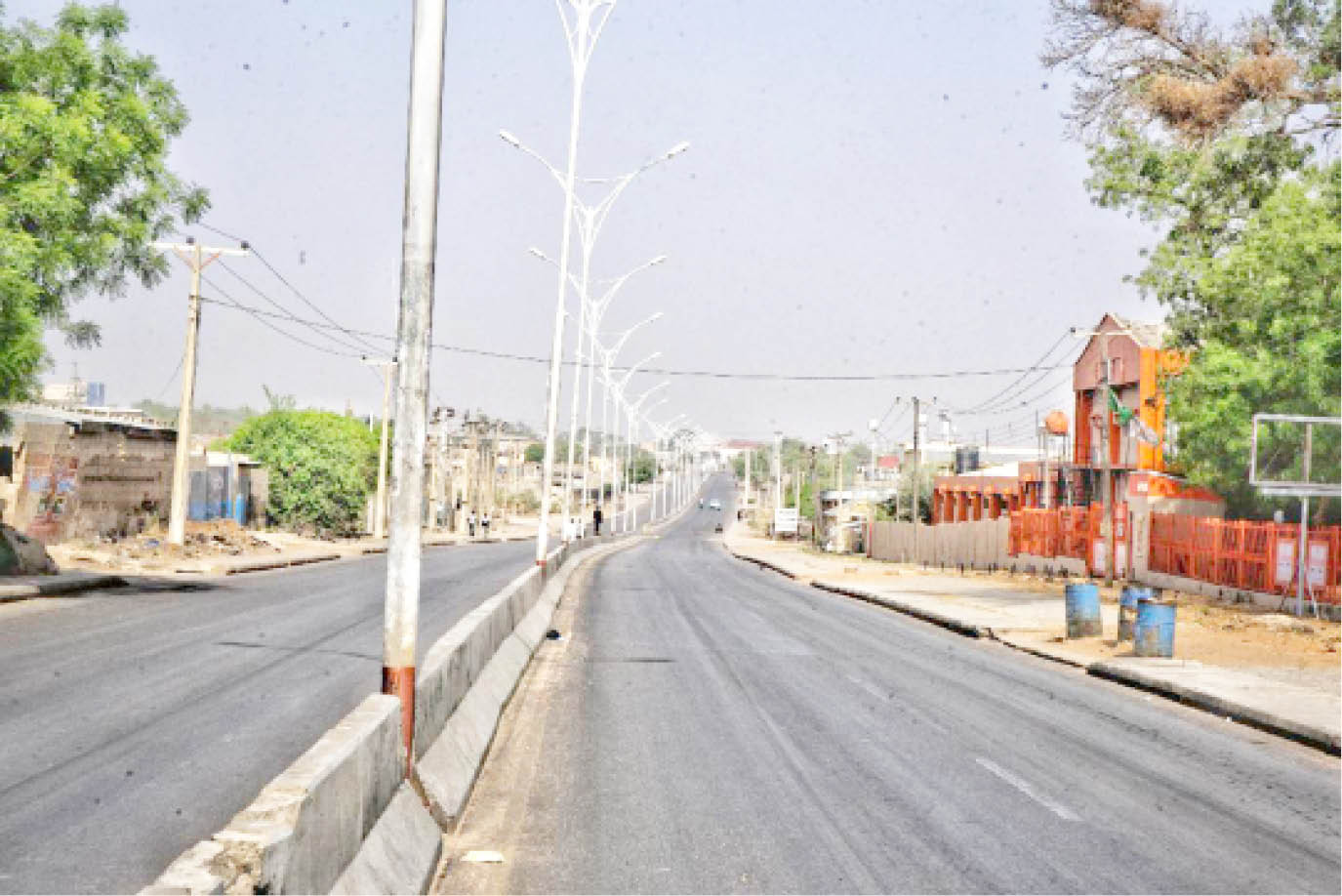Kano lockdown: Which way forward?
Restricting movement of people to prevent the spread of disease is not a new phenomenon. Indeed, it has been used for thousands of years, long before the cause of infectious diseases was even known. The book of Leviticus in the Bible talks about staying away from people with Leprosy which is similar to what Islam […]

FILE PHOTO: Independence Road along Bompai Police Quarter’s deserted as a result of the Kano State Government’s lockdown order to stop the spread of the Coronavirus pandemic epidemic, in the state
Restricting movement of people to prevent the spread of disease is not a new phenomenon. Indeed, it has been used for thousands of years, long before the cause of infectious diseases was even known. The book of Leviticus in the Bible talks about staying away from people with Leprosy which is similar to what Islam preaches. Numerous sayings of the prophet (PBUH) pertaining to travel bans during the time of plagues have been documented, centuries ago.
On the 14th of April, KNSG instituted a complete lockdown of Kano metropolis to commence from 10 pm on the 16th of April. The announcement was met with mixed feelings. Some of us felt the lockdown was coming a little too late while others wondered why the government were even locking down in the first place. Still, another group of people, who staunchly refuse to believe such a disease even exists were affronted that the government would dare do such a thing. Again, some of us wandered, in our minds, afraid to voice it out- would a lockdown be feasible in Kano? A state known for its diversity and commerce?
As expected, the panic buying began. I regretted my decision to go to Sahad Stores on Wednesday. The aisles were packed with people shoving groceries into shopping carts, hoarding food like there was no tomorrow. The man in front of me ordered for a truckload of rice and in my presence paid over N600,00 for his merchandise! Those who went to the markets met with an even worse fate: the crowd was loud and vicious, all in a bid to purchase what was left of the foodstuff. When I did make it to ‘Yankaba market the next day, I was told that the tomatoes were finished. At 8:00 am in the morning? How? While I was busy calculating whether the tomatoes at home would tide us over to the following week, I observed a young Lebanese lady who had come to do her panic buying. Instead of the traditional tomatoes and peppers we were scrambling for, she ordered the entire strawberries the market had to offer and filled her boot with assorted fruits and vegetables. Did I mention that Kano is diverse?
On Friday, when the lockdown officially began, the city was at a standstill. Everyone stayed back in their homes, afraid of the security men seen meandering around the streets with whips in the hands. Rumours of security officials whipping people with the traditional ‘Koboko’ were rife. We as health workers were permitted to convey ourselves to and from the hospital but were advised to keep our movement to the barest minimum.
Effects of the lockdown started manifesting shortly after. The streets started to look dirty and shabby with no one to clean them. The cleaners could not come to work as there was no public transport. An old lady who worked as a cleaner in the hospital told me that she walked for over 6km in order to come to work! Buses that the hospital provided for staff were not enough and could not reach the suburban parts of Kano.
By Monday, the faces of the people I saw at work began to look haggard. The refuse dumps on the streets were overflowing. I asked one security guard at the gate why he looked scruffy and he replied: ‘We no get water’. He had not bathed for three days as they had no water where he stayed. Their source of water was from those young men who hawked 25-litre jerrycans of water around their neighbourhood. Since their movement had been restricted, their source of water had dried up and the little left was reserved for cooking. Another way of looking at it is from the angle of the young men (who sold water)- what are they to do now? It is all very well and good for us to be shouting ‘Work from home! Work from home!’ Exactly what type of work do you expect these young men to do? They now sit idly in front of closed kiosks with despair written on their faces. Idle minds, they say, are the devil’s workshop.
By day 4, Kano people had started to revolt, albeit subtly. Corner shops that were once closed, opened up. The message was clear, people are desperate. Amid my trepidations, I could not deny the feeling of relief- we were out eggs and I desperately needed to buy a crate. Human nature, such as it is, is incredibly selfish.
So, what is the way forward? It is that same song we have been singing all along. Availability of basic amenities like potable water supply and electricity cannot be overemphasized. Until those are put in place, we dare not ask people to stay at home. As a short-term solution, food supplies like that of Lagos should be distributed according to local government. KNSG should partner with local NGOs and organize it in such a way that all local governments in Kano metropolis have a designated distributor for food stuff. Let the local government staff do their work. Distribution will then be in a transparent manner and monitored on camera.
Until then, (try) staying at home and stay safe!
